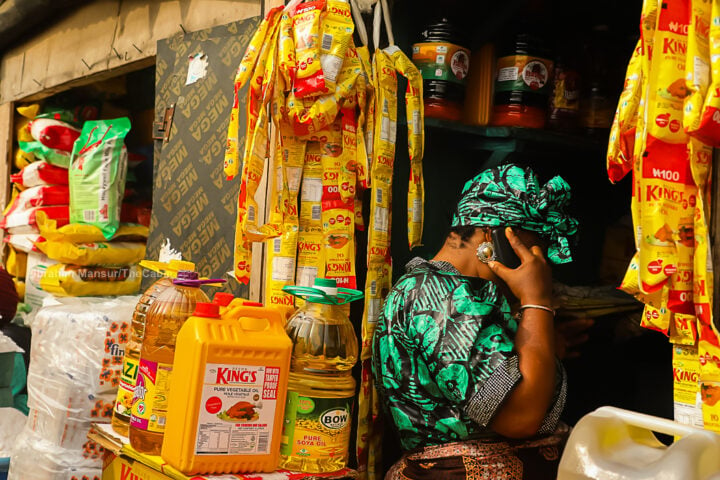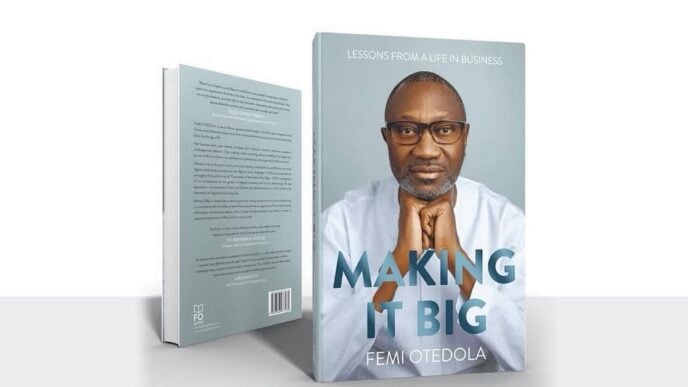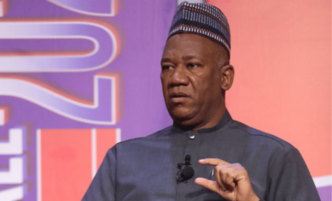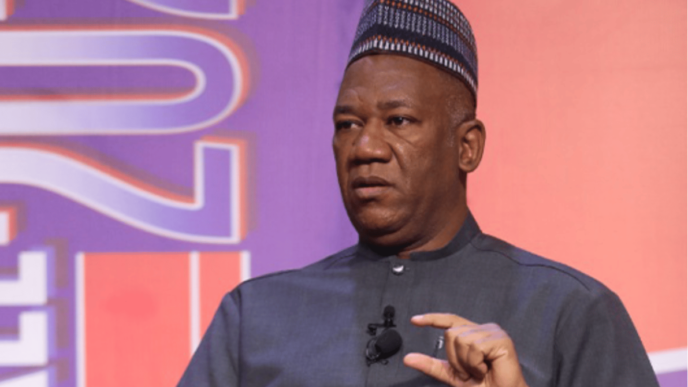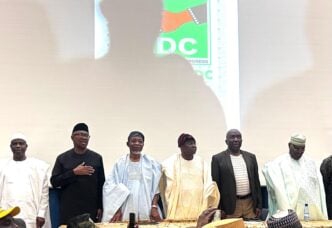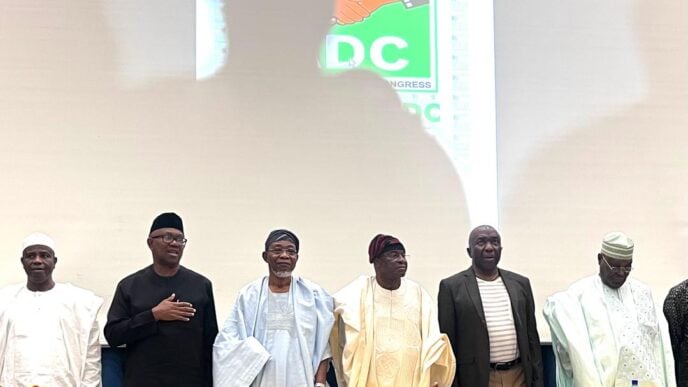The National Bureau of Statistics (NBS) announced that Nigeria’s headline inflation for July eased to 21.88 percent, down from 22.22 percent recorded in June. It was the fourth straight decline seen since 2025 began.
This news was celebrated. Policy advocacy groups described it as a sign that reforms are working and that prices are beginning to settle after the turbulence of the subsidy removal and naira devaluation policies.
But anyone who visited a market that week may tell a different story. Tomatoes were still costly, rice prices had climbed again, and transport fares showed no sign of relief. Even the NBS reported that food inflation, the category that consumes most household income, rose to 22.74 percent.
The same report showed that month-on-month inflation, which compared prices between June and July, increased to 1.99 percent. So while the annual figure eased, the short-term picture still pointed upward.
Advertisement
Around this time, Ngozi Okonjo-Iweala, director-general of the World Trade Organisation (WTO), praised President Bola Tinubu’s reforms for bringing stability. She said the president should be given credit for restoring stability after turbulent years.
Her words made headlines, but they also sparked frustration. For many Nigerians, the word “stability” felt out of place as a bag of rice is still north of N80,000.
WHAT DOES INFLATION REALLY MEAN AND HOW IS CPI MEASURED?
Advertisement
At its core, inflation is simply the rate at which prices rise. That is, how quickly they are going up — not about prices going down.
Economists capture this through the consumer price index (CPI). The CPI is a basket of goods and services — food, transport, clothing, rent, health, and more. Officials of the NBS track the prices of these items month after month to see how the overall cost of living is changing.
When the NBS says inflation is 21.88 percent, it means that on average, the items in that basket are 21.88 percent more expensive currently than they were in the same month last year.
The bureau refers to this as year-on-year inflation. If the basket cost N100,000 in July 2024, it will increase to nearly N121,880 in July 2025, using the inflation rate of 21.88 percent.
Advertisement
There is also the month-on-month inflation calculation, which compares the basket from one month to the next. In the NBS July report, month-on-month inflation was 1.99 percent, meaning that the same basket cost about 2 percent more than it did in June.
So, while the year-on-year figure may be falling, the month-on-month rate can be rising.
For example, if a plate of jollof rice costs N3,000 at a restaurant. With a 22.9 percent annual inflation rate, the same plate will now sell for roughly N3,660.
Based on the example, if inflation cools to 15 percent next year, the price may increase instead of decreasing.
Advertisement
WHY DOES A LOWER INFLATION RATE STILL HURT?
Food remains the largest contributor to Nigeria’s inflation and represents the category people cannot avoid.
Advertisement
In July, food inflation moved higher even as headline inflation fell, signalling a worsening pressure on consumers’ wallets, whether they are buying a tuber of yam or palm oil.
The Jollof Index, a report released by SBM Intelligence, captures the impact of food inflation more tellingly.
Advertisement
The report was created to show how much it costs to cook a pot of jollof rice across Nigeria.
According to the index, the average cost of cooking a pot of jollof rice in Nigeria increased to N27,528, a 153 percent increase between March 2023 and June 2025.
Advertisement
In some states, a pot now gulps 40 percent of the new minimum wage, implying that it is becoming more expensive to cook one of Nigeria’s popular meals, despite the “good” numbers.
WHAT IS THE ROLE OF CPI REBASING?
In January 2025, the NBS announced an update in the base year for inflation calculation and expanded the items in the CPI basket. Inflation sharply dropped to 24.48 percent in January from 34.8 percent in December after the rebasing process.
The statistical change was said to be necessary to keep data current, but it also showed how numbers can shift dramatically without any change in reality.
HOW DOES THE CBN INTERVENE?
The Central Bank of Nigeria (CBN) has kept interest rates at 27.5 percent in recent months.
This means the commercial banks will pay 27.5 percent interest when borrowing from the CBN. Because banks borrow at such a high rate, they also pass it on to businesses and individuals.
The goal is to make borrowing expensive so that people and companies take fewer loans. When fewer loans are taken, spending slows, and the pressure that drives prices upward begins to ease.
This tight policy is designed to discourage borrowing, reduce demand, and ultimately bring down inflation. It also serves as a signal to investors that the bank is serious about stabilising the naira.
But interest rates are considered a blunt tool which works slowly and unevenly.
While the monetary policy rate (MPR) may influence large firms’ decisions to expand with loans, it does not immediately lower the price of food items due to other factors affecting agriculture. Firms may also transfer the cost of borrowing to consumers. This explains why food inflation continues to bite despite a tight monetary policy.
WHAT DOES STABILITY MEAN IN AN ECONOMIC CONTEXT?
When Okonjo-Iweala said Tinubu deserved credit for stabilising the economy, she was speaking from a professional standpoint. Economists use the word “stability” to mean an economy that is no longer volatile.
In a stable economy, inflation does not jump uncontrollably every month. The currency is not collapsing every week.
Investors feel more confident about putting money into businesses because government policies are clearer. Jobs and incomes are relatively secure, and people can plan without constant fear of sudden shocks.
To further illustrate the concept of stability, it is akin to driving on a smooth road: the vehicle might be slow (growth), but it is not crashing into potholes every minute.
It is from this lens that Nigeria’s economy is viewed as more stable today. The naira is not crashing as quickly as before, foreign investors are watching with more interest, and headline inflation has slowed.
But despite this, prices are still high, and “stability” hardly feels like relief for many Nigerians.

